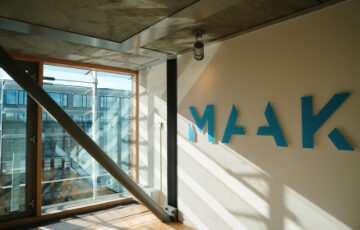
At MAAK Advocaten, we understand that navigating legal fees and processes in a foreign country can be challenging. The Netherlands, with its unique set of rules and regulations, is no exception. Let’s explore the intricacies of the procedure costs in the Netherlands to provide clarity for those seeking representation in Holland or simply wanting to be informed about the legal system in the Netherlands.
How Attorneys Charge in the Netherlands
In the Netherlands, there’s an absence of a fixed attorney fee schedule. Typically, Dutch lawyers set their hourly rates independently, without being bound by a predefined guideline. This gives attorneys the flexibility to price their expertise and services accordingly, ensuring a balance between quality and affordability.
Court Fees in the Netherlands: An Added Expenditure
Apart from the attorney’s hourly charges, clients must also be prepared for court fees. The magnitude of these fees is generally determined by the value of the dispute in question. Thus, it’s essential to factor this into the overall expected expenses when preparing for a legal proceeding.
The Role and Cost of a Bailiff
In the realm of civil processes, the bailiff plays a pivotal role. In the Dutch context, a bailiff is an independent entrepreneur, typically working within a specific jurisdiction. Their responsibilities encompass:
- Delivering court notifications and announcements
- Serving protests, summons, court orders, and judgements
- Handling the issuance of enforcement documents
Fees associated with bailiffs are governed by the “Tariff Justice-Costs” (BTAG-Tariff). Each specific official action has its respective tariff. Notably, these costs are borne by the client. However, when a debt is successfully recovered, the debtor only covers a portion of the bailiff’s expenses.
At MAAK Advocaten, we pride ourselves on collaborating with bailiffs who adhere strictly to the stipulated guidelines, ensuring transparency and fairness in all dealings.
Legal Aid for Individuals in Holland
For private individuals, the Netherlands offers the possibility of seeking legal aid, which is contingent on income and assets. Statutory income and asset limits apply in such instances. It’s worth noting that not all attorneys in Holland undertake cases on a legal aid basis. As such, it’s always recommended to clarify this with your chosen Dutch attorney.
Debt Collection Fees in the Netherlands: Special Provisions
When it comes to collecting monetary debts, there’s room for negotiating a distinct collection tariff. At MAAK Advocaten, we offer two distinct rates for debt collection in Holland, giving our clients the autonomy to choose the most suitable option for their needs.
“No Cure No Pay” in Personal Injury Cases
Introduced on January 1, 2014, there exists a trial procedure in the Netherlands that allows a “no cure no pay” arrangement for personal injury cases. This means that if the recovery of personal damages is unsuccessful, the client doesn’t incur any charges. A testament to the client-centric approach of the Dutch legal system.
Court-Determined Costs Post-Victory after civil litigation
On winning a lawsuit in the Netherlands, the court determines the amount of costs the opposing side must bear. However, in most scenarios, this stipulated amount doesn’t cover all your expenses. As a result, clients often have to shoulder a portion of the costs. This represents a significant deviation from the German legal system and is a crucial point of consideration for those familiar with the latter.
In Conclusion
Navigating the legal financial landscape in the Netherlands requires both knowledge and expertise. While this overview provides a foundational understanding, every case has its nuances. Should you have any questions or need assistance regarding the procedure costs in the Netherlands, do not hesitate to reach out to us at MAAK Advocaten. We’re always here to support and guide you through the intricacies of the Dutch legal system.







